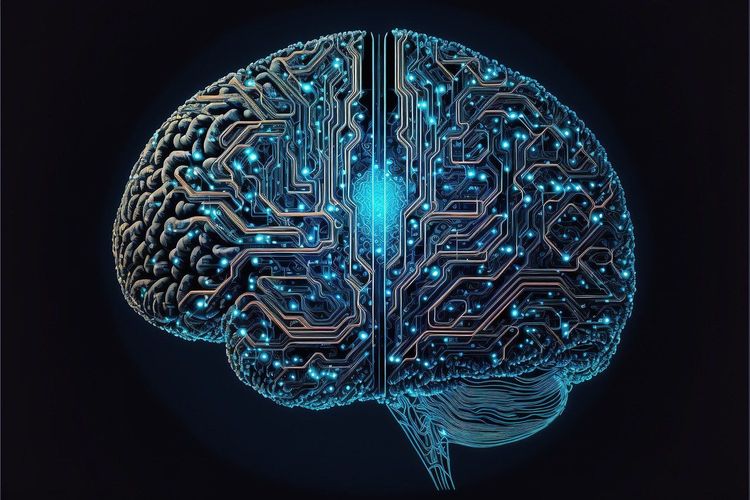After securing an impressive $20 million seed round last year, Unlikely AI founder William Tunstall-Pedoe has kept the details of the U.K.-based foundation model maker’s technology closely guarded.
Neuro-symbolic AI unites the modern techniques of neural networks used in large language models (LLMs) like OpenAI’s GPT with earlier Symbolic AI frameworks, effectively addressing the limitations inherent in both methodologies.
William Tunstall-Pedoe first gained recognition in the U.K. tech scene in 2012 when Amazon acquired his voice assistant venture, Evi. Just two years later, Amazon launched the Echo and Alexa, leveraging much of Evi’s technology. With Unlikely AI, Tunstall-Pedoe aims to return to the forefront of the industry, revealing the innovative technology his team has been developing since the startup's inception in 2019.
At Stability AI, Mason led the development of crucial foundational models across different disciplines and played a pivotal role in helping the company secure over $170 million in funding. In his new role as CTO at Unlikely AI, he will direct the company’s “symbolic/algorithmic” strategy.
Joining the team is Fred Becker as chief administrative officer. Becker has held senior positions at notable companies like Skype and Symphony. At Unlikely AI, he will manage the growing team of 60 employees, largely based in Cambridge and London.
The AI startup asserts that its foundational model approach aims to mitigate familiar risks such as bias, “hallucination” (or fabrication), inaccuracy, and the challenge of trust. Moreover, it claims this methodology will consume less energy, addressing the environmental concerns associated with large-scale AI technologies.
“We’ve been working quietly for several years, and we’re thrilled about our two new senior hires,” Tunstall-Pedoe shared.
Expanding on the team’s vision, he explained, “We are creating a ‘trustworthy’ AI platform designed to tackle the key challenges in the field, particularly regarding hallucinations and accuracy. By integrating generative AI and statistical AI with symbolic algorithmic methods and conventional software practices, we enhance both scalability and reliability.”
Tunstall-Pedoe characterized the platform as “horizontal,” meaning it will encompass various application types. However, he was more reserved about specific applications, focusing instead on the concept of “trustworthy AI.”
Mason reflected on his time at Stability AI, highlighting the company’s achievements in developing “incredible models” and cultivating a vibrant ecosystem around them, despite the turbulent departures of notable team members, including the abrupt exit of founder Emad Mostaque. While expressing good wishes for his former colleagues, he conveyed his excitement about joining Unlikely AI.
Delving into the technology, Tunstall-Pedoe elaborated that the platform combines “neuro” and “symbolic” elements. “The term ‘neuro’ relates to deep learning, addressing challenges that machines have struggled with for decades. ‘Symbolic’ denotes the software powering everyday applications like spreadsheets.”
He noted a significant drawback of the “neuro” approach, as it may be inaccurate at times. “When training a model, it improves over time, but it never reaches complete accuracy. For example, if it's correct 80% of the time, that leaves a 20% error margin, which can severely harm trust.”
The opacity of neuro-based calculations contributes to this trust deficit, with ongoing research aiming to decipher the intricacies of these large language models. In contrast, Unlikely AI plans to merge the reliability of traditional software—where calculations are 100% accurate—with the generative capabilities of modern AI.
“What we’re doing combines the strengths of both worlds,” Tunstall-Pedoe asserted. “We’re leveraging the advancements in LLMs and deep learning while integrating the trustworthiness, scalability, cost effectiveness, and environmental sustainability offered by non-statistical machine learning. Our vision of AI encompasses all these capabilities in a fully trustworthy manner.”
He believes this hybrid approach will yield cost and environmental benefits, contrasting sharply with current large language models, which are both expensive to operate and ecologically harmful due to their inaccurate outputs.
Addressing why other foundational models don’t take similar approaches, Mason responded, “I think that evolution is underway. We often refer to it as ‘compound architecture.’ We’ve seen the emergence of frameworks like RAG, which aligns with this trend—it builds upon existing paradigms while leveraging the advantages of symbolic reasoning for accurate conclusions.”
With this perspective, Mason is confident that Unlikely AI is “ahead of the curve” in this space. Another consideration is whether Unlikely AI will develop a comprehensive foundational model akin to OpenAI's offerings or adopt a mixed strategy like Mistral, which provides both foundational and open-source models.
Tunstall-Pedoe stated that the company has not yet locked down its strategic direction: “Our decision-making process is ongoing. We’re focused on building a robust platform, and some aspects are still to be determined. However, rest assured, we will make decisions soon.”
One thing is certain, though: the company will operate out of London and Cambridge. “While our population is smaller than in places like the U.S. and China, London offers an exceptional environment for building an innovative AI startup. There’s an abundance of talent and a thriving culture of innovation.”
Although the release timeline for their model remains uncertain, Unlikely AI is resolute in its ambition. With AI topping the strategic agenda for every trillion-dollar company, Tunstall-Pedoe aims for impactful adoption. “We aspire to achieve significant success and make a far-reaching impact. We are open to exploring various avenues to realize that goal.”







